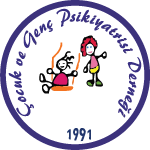ABSTRACT
Objective:
Attention Defi cit and Hyperactivity Disorder (ADHD) is a common neurodevelopmental disorder widely seen in childhood. Even if the diagnosis of ADHD is made primarily through observation and review of symptoms involving attention problems, hyperactivity and impulsivity; most of these children have irritability symptoms as a result of emotional dysregulation. The aim of this review was to evaluate relevant studies to shed light on emergence of irritability symptoms that are frequently observed in ADHD, their effects on the clinical course of the disorder, along with an exploration of treatment alternatives.
Method:
“Attention Defi cit Hyperactivity Disorder” and “irritability” key words were used to determine relevant studies for review and a total of 55 reseach papers in Turkish and English language were included.
Results:
Studies support that ADHD and irritability show high rates of comorbidity and there might be a hereditary sub-type of ADHD which is characterized by emotional dysregulation.
Discussion:
While evaluating irritability symptoms, it would be important to determine if irritability is of chronic nature just as differentiating pathological and non-pathological irritability from one another. Problems in processing of negative stimuli in amygdala specifi cally as well as problems in connectivity of these regions with frontal brain regions might take part in emerging irritability symptoms. Stimulant medication is found to be effective in dealing with irritability symptoms in ADHD; with this said, child-focused behavioral and family-focused psycho-educational interventions should as well be integrated to treatment.



